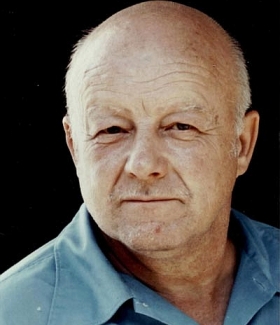Even the desire for peace of mind or bliss is an ego. Life is a battle, and we don’t want to face that.
An experience can’t be happy, eternally. We are bipolar beings. When there’s happiness, there’s automatically sorrow. If we were purely happy all the time, it would get so damn monotonous we’d wish for some sorrow or problem to overcome, just for the sake of a challenge.
The ego is the single biggest obstruction to the achievement of anything. Between-ness is the act of acting without ego. You act, but you are not the actor. You do things, but you are not the doer–and you know you are not the doer. It’s the ability to hold the head at a dead standstill in order to effect certain changes. You desire the change, but you do not care if it comes to pass.
The mistake people make is to wait for something to happen to them before they begin searching. They want the voice of God, or something, to tell them to get started. Or maybe they know they should be doing something but they procrastinate, hoping that tomorrow they’ll have more conviction and be more determined. What they forget is there may be no tomorrow for them.
The most painful thing on earth is a pleasant memory. This nostalgia that sometimes comes over us isn’t an accident. It’s a message. It has something to tell us. We’re programmed to indulge in life, but this haunting nostalgia is a subliminal message from another plane. It’s the homing instinct of the mundane mind. At its best, it’s what draws us back to the Father. Nostalgia is a window to the soul, and the soul is lost to man as he lives. Nostalgia is the soul’s memory of prior experience. Touching it, you touch the Eternal.
Life
Birth: Richard Rose was born at home in Benwood on March 14, 1917 to Richard and Marguerite Orum Rose.
Realization: Richard Rose entered a Catholic pre-seminary in Butler, Pennsylvania at age 12. He later recounted his delight at the prospect of living with monks and nuns who he believed had direct connections to God. Rose was working in the spring of 1947 as a waiter at a tennis club in Seattle when he experienced what he described as “God Realization”. He underwent a cataclysmic spiritual experience that left him with an intimate understanding of the secrets of life and death.
Death: Richard Rose died on July 6, 2005.
Teaching Style: Rose advocated a very personal commitment similar to Gurdjieff and he discouraged casual commitment. He worked closely with groups, beginning with university students and professional people. He published a number of books and spoke widely in universities and other venues across the country during the 1970s and 1980s.Rose continued to write and publish while his study groups expanded. His public lectures continued until the early 1990s.
Fame: Richard Rose was an American mystic, esoteric philosopher, author, poet, and investigator of paranormal phenomena. He developed a system which he described as the “retreat from untruth,” an examination of personal belief systems and lifestyles. In that system one discards what one finds to be false on a case-by-case basis. He believed a spiritual Ultimate truth exists and can be found for oneself with sufficient application of effort, and recommended skeptical approaches such as his. He devoted his life to giving people the tools to find their Real Self. His scientific approach to a spiritual search was the genesis of what he would later call the Albigen System.
Legacy: Richard Rose recommended a number of authors to his students and disparaged other authors, based on his research. Those he most highly recommended were Indian guru Ramana Maharshi, Chan master Huang Po, Christian mystics St. John of the Cross and Teresa of Avila, George Gurdjieff, and researchers Paul Brunton and Richard Bucke. In Albigen Papers he described H.P. Blavatsky’s books as “some of the most valuable.
Teachings
What Richard Rose taught sprang from his personal realization of Truth. He did formulate a system of teachings based on his study of other traditions and his own insights. The core questions of his teachings can be summarized as:
- Who am I (ultimately)?
- Where did I come from (before birth)?
- Where am I going (after death)?
He also insisted that a life of activity is meaningless as long as the identity of the actor is not known. He thought approaching spirituality as a way to find peace or enhance one’s life, which he called “utilitarian,” was foolish.
he advocated total dedication to a search for truth — in particular concerning self and ego — in spite of the personal consequences.
Rose also believed that progress on one’s spiritual path was linked to one’s efforts at helping others.


[…] Richard RoseRichard Rose was an American mystic, esoteric philosopher, author, poet, and investigator of paranormal phenomena. He believed a spiritual Ultimate truth exists and can be found for oneself with sufficient application of effort, and recommended skeptical approaches such as his. […]